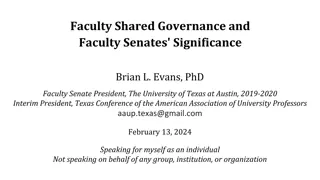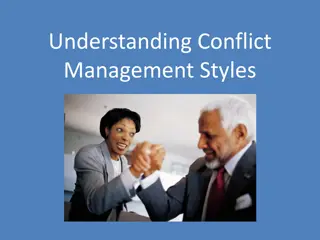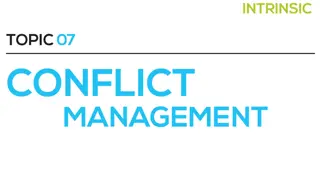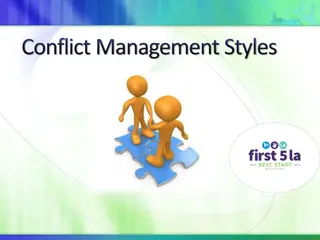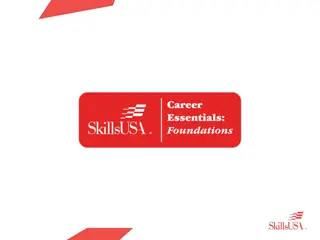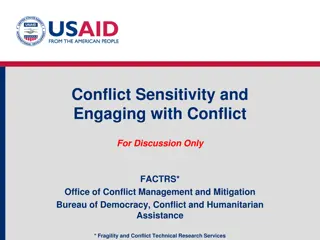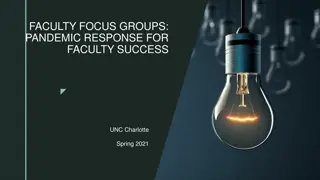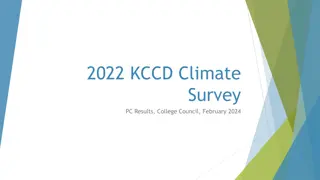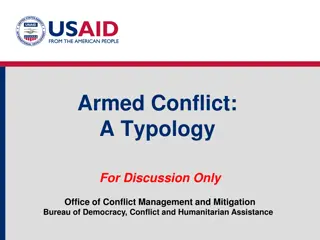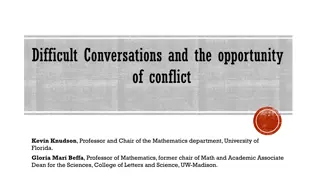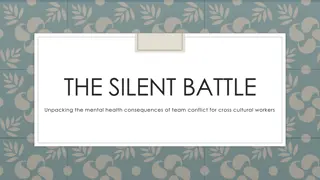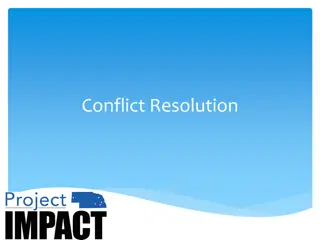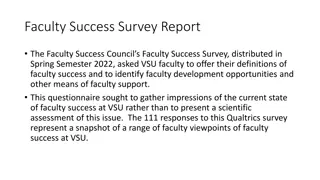Dealing with Conflict and Maintaining Faculty Morale
Struggling to navigate conflicts while upholding faculty morale? Gain valuable insights and strategies from Karen M. Bryan's session at the Institute for Academic Leadership. Explore proactive approaches to manage conflicts in academic settings effectively, fostering a supportive environment for faculty members' well-being and productivity. Enhance your leadership skills in handling challenging situations and promoting a positive faculty culture through this enriching presentation.
Download Presentation

Please find below an Image/Link to download the presentation.
The content on the website is provided AS IS for your information and personal use only. It may not be sold, licensed, or shared on other websites without obtaining consent from the author.If you encounter any issues during the download, it is possible that the publisher has removed the file from their server.
You are allowed to download the files provided on this website for personal or commercial use, subject to the condition that they are used lawfully. All files are the property of their respective owners.
The content on the website is provided AS IS for your information and personal use only. It may not be sold, licensed, or shared on other websites without obtaining consent from the author.
E N D
Presentation Transcript
Dealing with Conflict and Maintaining Faculty Morale Institute for Academic Leadership June 6, 2018 Karen M. Bryan University of South Florida
There is one certainty: There will be conflict. Productive Conflict Ideas, strategies, goals can be discussed and debated. Not everyone will win, but everyone should be heard. Non-Productive Conflict When the productive conflict turns personal it becomes more about personalities than a discussion of ideas When colleagues end up at odds with one another for whatever reason, the entire unit suffers
Conflicts will arise between a number of different constituencies Faculty members and student(s) Faculty members and administrators (on whatever level) Faculty members and other faculty members
Important point to remember: It is important to address issues earlier rather than later Don t take it personally, even when it is meant to be Don t get angry Know your unit and university governance documents thoroughly Be willing to have the hard conversations Hold your own counsel in the academic environment and elsewhere Be willing to seek advice or help when needed Find a confidant and sounding board
It is important to address the conflict earlier rather than later. Consequences if you don t: The conflict will grow beneath the surface and will fester Lack of trust will become prevalent Complaints will increase Faculty will start to avoid meetings where the other person or faction will be, or where there is a chance for the issue to erupt. Sarcasm will increase Productivity and general morale will decrease
Rely on process and policies to help you navigate through these issues. Know your unit and university governance documents thoroughly Departmental and College By-Laws Departmental Faculty Handbook; University Faculty Handbook Collective Bargaining Agreement Be transparent, fair and consistent in your decisions, particularly when involves these policies or budgetary matters.
Dont take the conflicts personally. If you take the conflicts personally, the only person that will suffer is you. Doing so will impact your judgment. It will cloud your vision for the department. It will lower your morale. It will take a toll on you both physically and mentally.
Dont get angry. Step back. Delay or reschedule the meeting. Do not respond to e-mails immediately. Go through multiple drafts offline if necessary. When all else fails, use Larry s technique!
Be willing to have the hard conversations. Employ active listening. Try to see through the surface issues to those lying underneath. Be as fair and unbiased as possible. Be clear about your decisions and the results of the meetings. Follow the meeting with a summation so that all parties are clear and the results are memorialized Important points: Be aware of the emotional climate Stay focused on the problem Do not allow name calling Be willing to develop alternate solutions Be clear about next steps Don t let them leave the meeting without a back-up plan
Hold your own counsel in the academic environment and elsewhere.
Be willing to seek advice or help with needed. The Dean (sometimes) Office of Diversity, Inclusion and Equal Opportunity (Affirmative Action) Ombudsperson University Legal
Mutual Agreements for faculty meetings Adapted from rules for civility by P.M. Forni in Choosing Civility 1. Be fully present and participate fully 2. Speak and listen honestly from the heart and head 3. All ideas are worthy, even if you do not agree with them. 4. Maintain a sense of humor. 5. Maintain moderation of language and tone. 6. No one dominates 7. Trust the process. 8. Embrace change and help others embrace change. 9. What is said here stays here; what is learned here leaves here.
Additional Resource James R. Coffman: Work and Peace in Academe: leveraging time, money and intellectual energy through managing conflict. Bolton, MA, Anker Publishing Company, Inc., 2005. Countless other resources for departmental leadership



